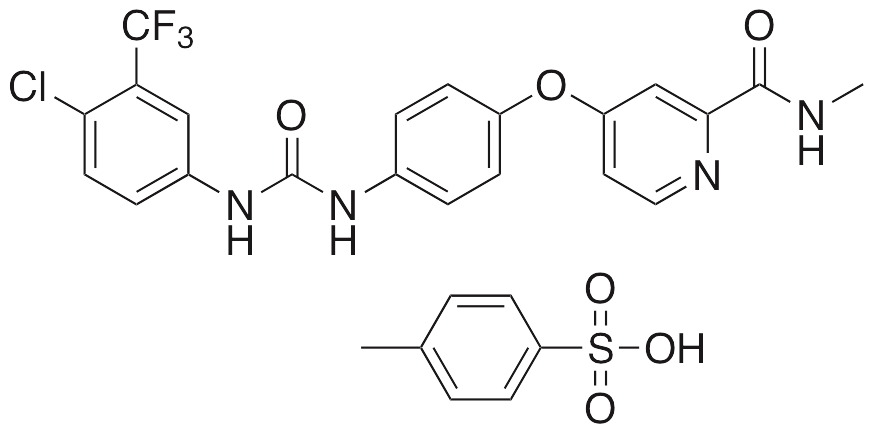Description
Sorafenib is an inhibitor of c-Raf, RET, and VEGFR2 that is currently used clinically to treat renal cell carcinoma and hepatocellular carcinoma, as well as other advanced cancers. Sorafenib exhibits anticancer chemotherapeutic, anti-angiogenic, and immunosuppressive activities. In osteosarcoma cells, sorafenib inhibits cell proliferation by downregulating expression of ERK and VEGFR2 and inhibiting phosphorylation of VEGFR2, RET, and MEK1. In cellular and animal models of lymphoma, sorafenib inhibits phosphorylation of MAPKs and PI3K/Akt, decreasing vessel density and increasing apoptotic cell death. Sorafenib also inhibits the epithelial-to-mesenchymal transition (EMT) in epithelial cells and potentiates histone acetylation. In hepatoma cells, this compound decreases levels of enhancer of zeste homolog 2 (EZH2) and inhibits histone methyltransferase (HMT) activity, inducing apoptosis. In animal models, sorafenib inhibits tumor growth, increases tumor-specific T cells, and decreases CD8+ and Treg T cell functions by inducing T cell apoptosis. Additionally, sorafenib inhibits phosphorylation of STAT3/5.
